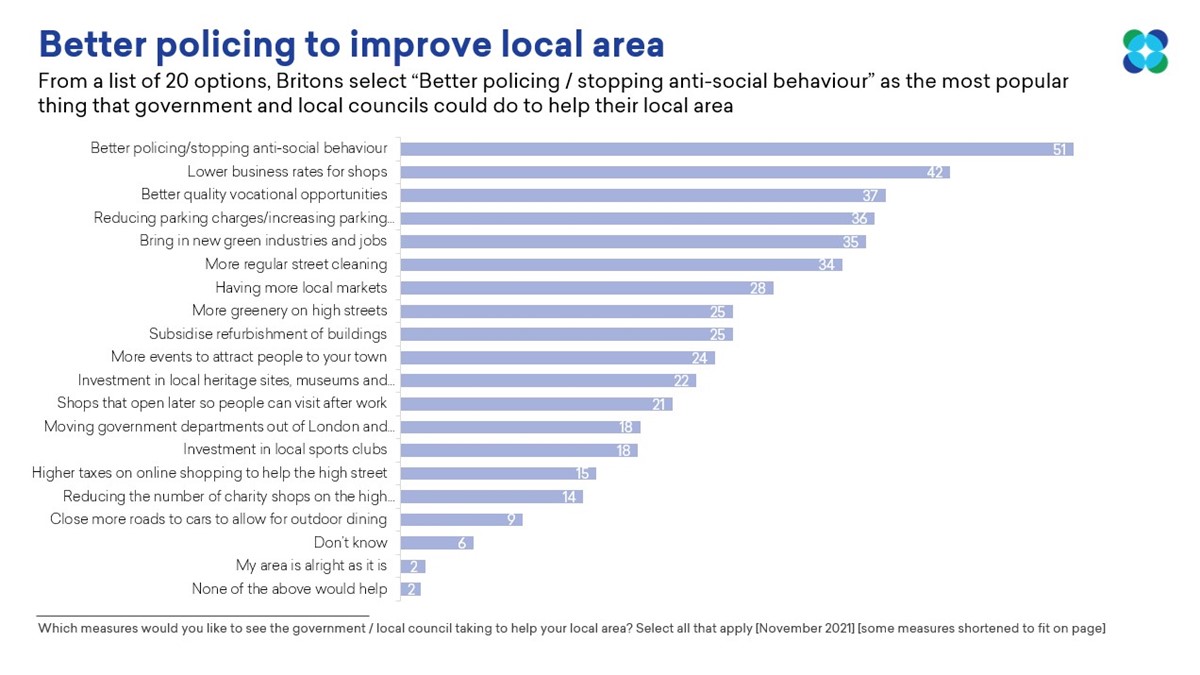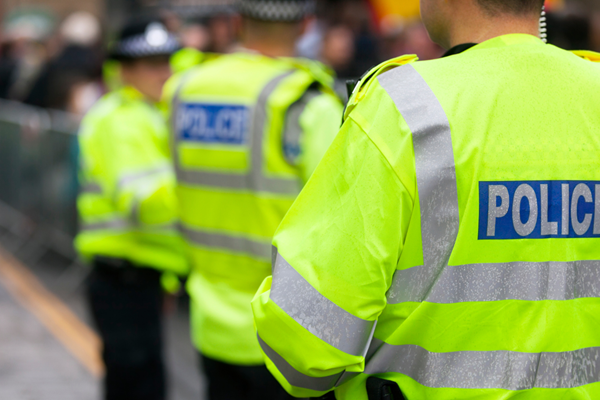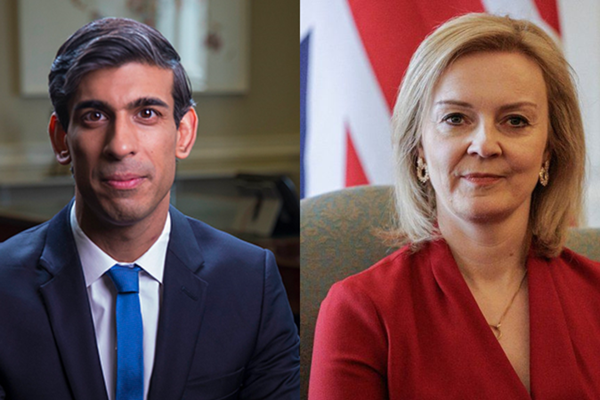Crime has emerged as a key topic in our public opinion research. The following briefing brings together some of More in Common’s initial research on the topic, in advance of a full report, to be published in Autumn 2022.
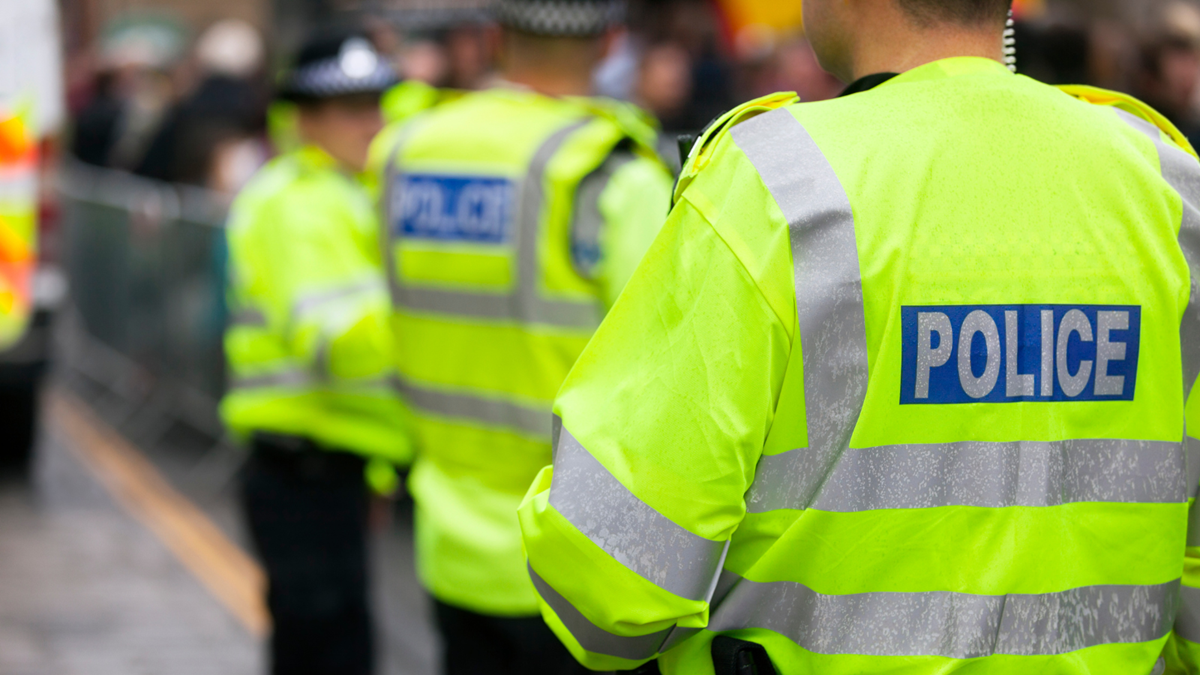
As recorded crime reaches a 20 year high, and the number of crimes the police manage to solve reaches a record low (just 5.8 per cent) compared to 15.5 per cent in 2014/15 when modern records started, worries about have crime have emerged as a consistent theme of our public opinion research.
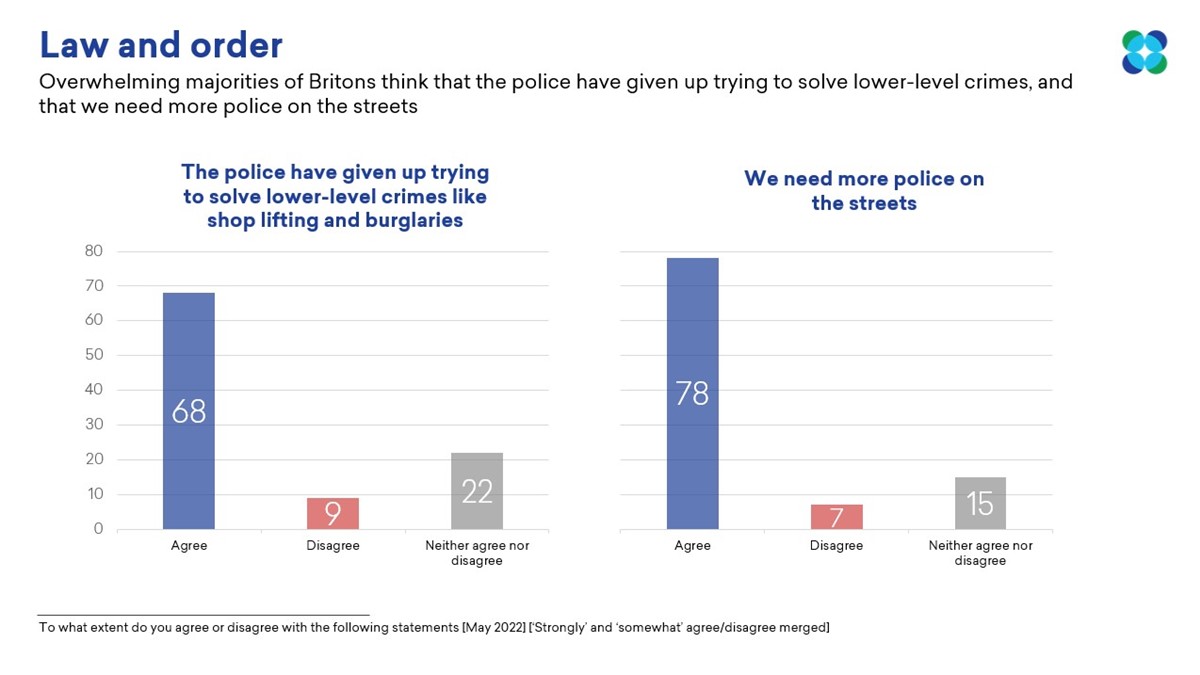
In focus group conversations over the past year, people have shared their anxiety that when it comes to burglary and anti-social behaviour the police are no longer even trying. This is borne out in our polling which which found the public agree 68 per cent to 9 per cent that the police have given up trying to solve low level crime.
If you any problem here with street crime, when you ring the police, they'll only come after two or three hours. They make excuses "We are short staffed". In the last couple of months, somebody damaged my car outside in the drive, smashed my windscreen and smashed my front window as well. When I rang police, they said they'd come after three hours, then didn't. They said "Oh, we are short staffed. We can't do anything"
Majid, Stoke-on-Trent
I don't think that we've got the safe environment. The local police forces and councils, they can't make the place safe. The councils can't keep the glass off the floor in playgrounds now
Tracey, Rother Valley
A feeling that low level crime has essentially been decriminalised, has a toxic effect on social cohesion, leaving people not wanting to take their children to local parks, unsafe walking home at night, and unable to open or run local businesses. In short low-level crime is forcing people out of their communities and into their homes.
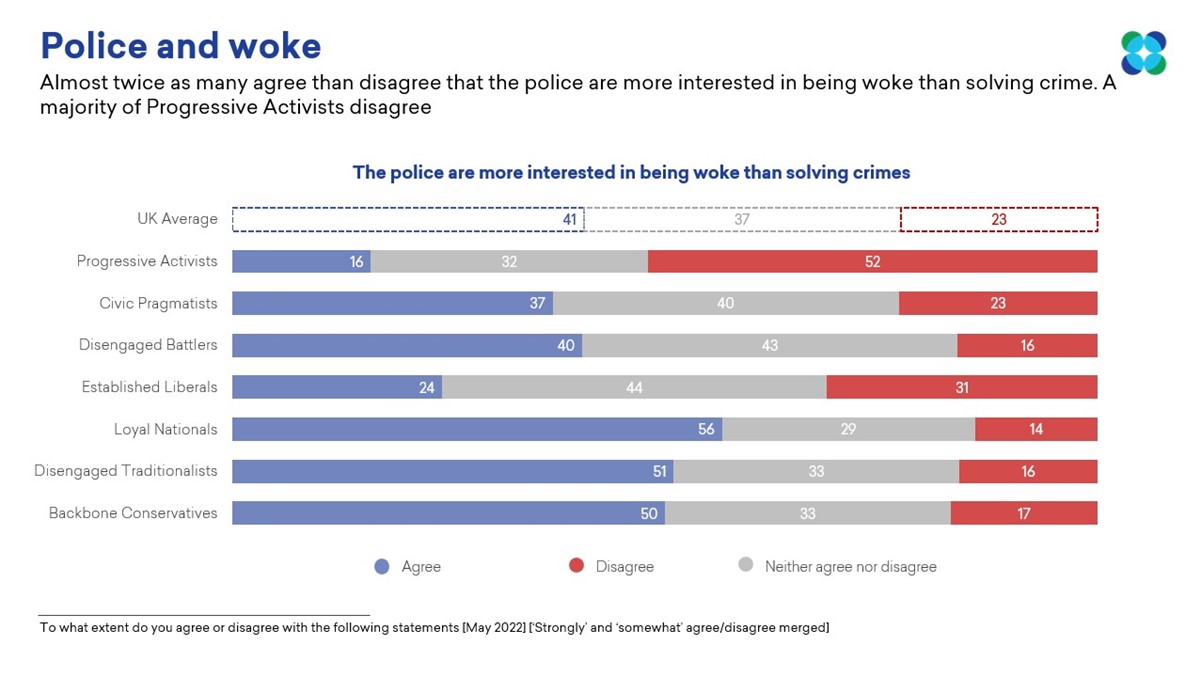
At the same time many people blame the rise in low level crime on the police having the wrong priorities. Specifically, stories about police spending time on DEI and related activities have clearly cut through with the public. Participants in focus groups talk about images they have seen of the police taking the knee or dancing at pride events and wonder if this is distracting them from their job ‘on the beat’. Polling bears out this concern, with the public twice as likely to agree (41 per cent) than disagree (23 per cent) with the statement that “the police are more interested in being woke than solving crimes”. This includes clear majorities among the three more socially conservative ‘British Seven’ segments, with only one segment - Progressive Activists – with a majority who disagree.
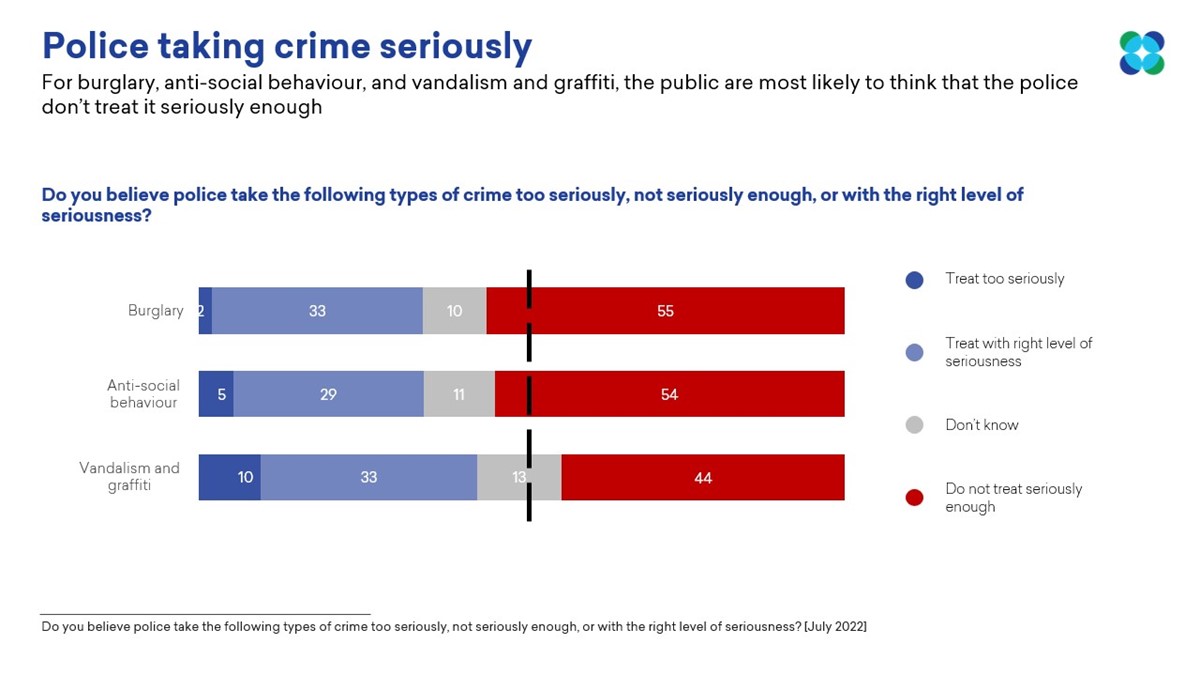
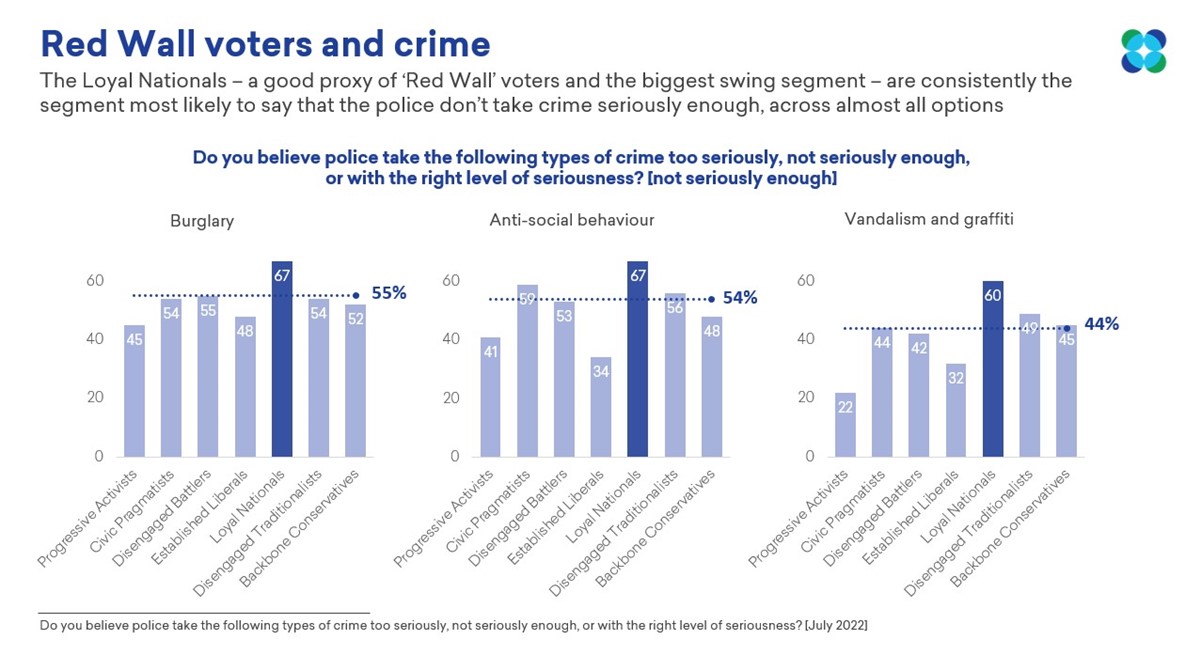
Across the board Britons think that low level crime is not being dealt with seriously enough. However, those perceptions are strongest among our Loyal National segment. Economically socially conservative, but economically statist this group best proxy the average ‘Red Wall’ voter. At the 2019 General Election they had the largest swing (8 points) from Labour to the Conservatives but have strongly swung back since.
Loyal Nationals also identify crime as one of the biggest reasons that their communities have declined in recent years. Given that this group of voters are intended to be among the primary beneficiaries of levelling up, it seems clear that the success or otherwise of the policy will depend on the police and Government’s ability to get a grip on crime. That helps to explain why from a list of 20 options Britons select policing/stopping anti-social behaviour as the best thing the government could do to help their local area
